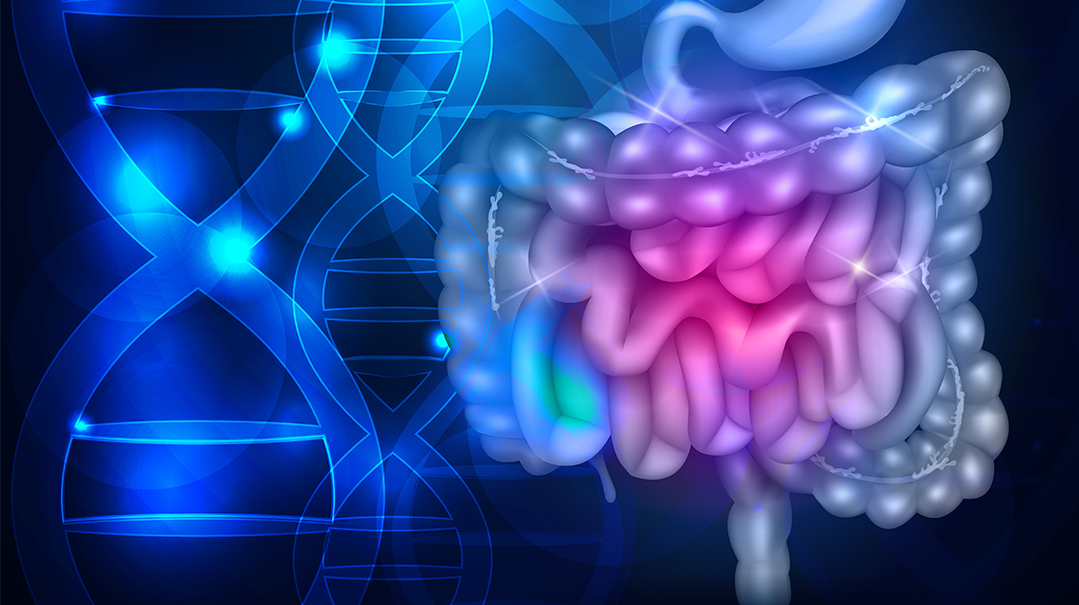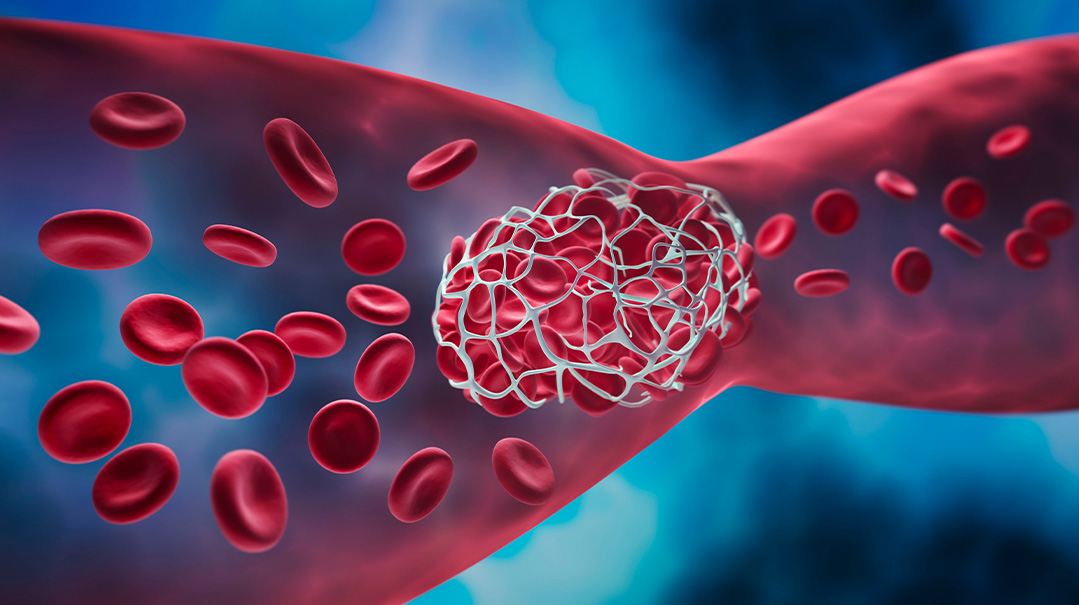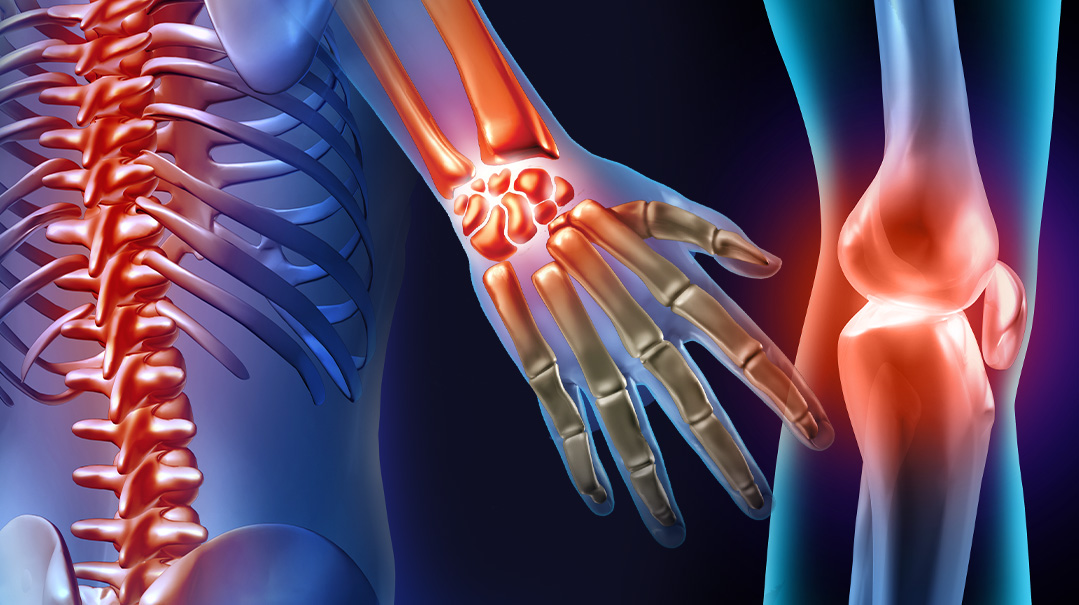Gut Feeling

My son’s legs were aching — but instinct told me something else was the culprit

As told to Rachael Lavon
My son Eli has always been an easygoing kid. He’s never been one to kvetch or sweat the small stuff, so when he woke up complaining of pain in his legs on the first day of summer vacation, I was a little surprised. At first I tried to calm him down, thinking maybe he’d ran around too much the day before and his legs were just sore — 12-year-olds can be very active. I gave him Motrin and told him that as soon as the medicine kicked in, he’d feel much better.
I had a huge day planned for the kids, and I figured he’d be feeling up to joining the fun within the hour. But as the morning progressed, the pain only got worse. He was miserable, and was making everyone else miserable too. I still wasn’t overly concerned, but to err on the safe side I called the pediatrician, hoping a checkup and reassurance would help Eli feel better.
The doctor found some swelling in the legs and started asking us questions. For 45 minutes he went through a long list of questions. Eli had been diagnosed with High Functioning Autism years earlier, but he’s so high functioning we often forget. He does have some mild communication issues though, and he won’t necessarily vocalize when something’s bothering him. This suddenly became relevant as I looked over at Eli sitting in the doctor’s office. This was not a kid who complained for no reason; clearly he was in excruciating pain.
The doctor continued asking us questions. He checked his chart and saw Eli had lost 5 kilo (11 pounds) and hadn’t grown at all in the last year. The doctor kept feeling his legs, comparing the two. Then he looked up at me and asked, “Is there any history of Juvenile Arthritis in the family?” The question sent a shiver up my spine.
Twenty years ago, when my younger sister was a teen, she suffered for three years with symptoms of what we’d thought was Juvenile Arthritis. She’d always been a super energetic girl; she played sports, had tons of friends, and was always on the go, when suddenly, she withered down to skin and bones.
Eli had always been extremely thin, but we’d never thought much of it. As soon as the pediatrician asked about a family history of Juvenile Arthritis I startled, because my sister had been misdiagnosed. She suffered for three long, painful years as they treated her for Juvenile Arthritis when, in fact, she was suffering from a severe case of Crohn’s disease.
She didn’t have a single symptom that typically comes with the disease; all of her symptoms presented as Juvenile Arthritis, so she suffered and suffered until it got so bad, they finally figured out what it was. By then, the disease had progressed to the point that she needed to have a huge part of her intestine removed because there was a complete blockage.
I explained all this to the pediatrician, and he took my worries seriously, sending us for an extensive battery of tests. Everything came back borderline. We still had no definitive answers.
The next step was to go to a rheumatologist, who ordered another battery of tests. He was insistent that Eli was suffering from a regular case of Juvenile Arthritis; he had all the symptoms. I explained the family history and what my sister had gone through and he thought about it for a moment, then agreed. “This needs to be explored with a gastroenterologist,” he said. “We can’t jump to any conclusions here.”
He sent us to a top professor at Hadassah Medical Center, who looked over the scans and then said, “You’re pushing too hard to explore the Crohn’s angle — there’s nothing wrong with him, his scans look 100 percent fine. There’s barely anything there!” But I kept pushing. That maternal instinct coupled with the fact that I watched my sister suffer tremendously wouldn’t let me give up on this.
“There’s something wrong with my son and because of what my sister went through I don’t want this to wait,” I told the professor. Thankfully he took my worries into consideration and sent us for yet another round of tests. The numbers were just borderline enough to warrant a colonoscopy and endoscopy.
Part of the miracle of Eli’s story is the time frame. His legs began hurting right around summer vacation, and on Erev Rosh Hashanah we were already prepping for his colonoscopy. Everything happened so fast!
They wheeled Eli in and put him under general anesthesia. I still remember sitting there after the procedure with my husband, waiting and worrying. The professor came out with a very grim face, walked over to us and said, “I need to apologize to you. You were right. Your son is really sick.”
He pulled up the scans and showed us huge blockages in his intestines. Because Crohn’s is an autoimmune disorder, his body was essentially attacking his intestines and damaging them.
With Eli’s mild form of autism and his reluctance to share his feelings, he may have gone for years with stomach discomfort without telling us a word. But his Crohn’s presented with terrible leg pain, which led us from symptoms to diagnosis and the start of treatment in under 9 weeks — a miraculously short amount of time.
Thankfully, all the damage was only located in his intestines and nowhere else. As soon as we started treating his Crohn’s, the “Juvenile Arthritis” symptoms disappeared; there’s absolutely nothing wrong with his joints at all. It’s still a mystery, but for whatever reason, the Crohn’s only showed up in his knees.
Before we got the diagnosis, he was teeny and tiny, and in retrospect, tired much of the time. Once we started treatment, he began to grow, and his energy improved as well. At first, we had to go back and forth to the professor for treatments and weigh-ins very often. Now we only go once every eight weeks to the hospital so he can receive Remicade intravenously.
He has to sit there for a few hours. Now that he’s growing it takes even longer, but baruch Hashem he’s growing. He’s eating well, and his height and weight have shot up tremendously. He never had the classic symptoms of Crohn’s disease — no stomach discomfort or cramping — and baruch Hashem, he continues to feel totally fine and be symptom free. The main discomfort is when he needs to receive his medication intravenously every eight weeks.
We’re so grateful to Hashem that my son didn’t have to go through what my sister went through: years and years of excruciating pain as she got sicker and sicker. I’m sharing this story to underscore the importance of knowing your family medical history and letting your doctor know when family history may be relevant.
Crohn’s at a Glance
Crohn’s disease is a type of inflammatory bowel disease (IBD). It causes inflammation of your digestive tract, which can lead to abdominal pain, severe diarrhea, fatigue, weight loss, and malnutrition.
Inflammation caused by Crohn’s disease can involve different areas of the digestive tract in different people. This inflammation often spreads into the deeper layers of the bowel.
Crohn’s disease can be both painful and debilitating. While there’s no known cure, therapies can greatly reduce its signs and symptoms, and even bring about long-term remission and healing of inflammation.
Symptoms
Crohn’s disease can affect any part of your small or large intestine, and it may be continuous or may involve multiple segments. In some people, the disease is confined to the colon, which is part of the large intestine.
Signs and symptoms of Crohn’s disease can range from mild to severe. They usually develop gradually, but sometimes will come on suddenly, without warning. There may also be periods of time when there are no symptoms (remission).
When the disease is active, signs and symptoms may include:
Diarrhea
Fever
Fatigue
Abdominal pain and cramping
Blood in your stool
Mouth sores
Reduced appetite and weight loss
People with severe Crohn’s disease may also experience:
Inflammation of skin, eyes, and joints
Inflammation of the liver or bile ducts
Kidney stones
Iron deficiency (anemia)
Delayed growth in children
Causes
The exact cause of Crohn’s disease remains unknown. Previously, diet and stress were suspected, but now doctors know that these factors may aggravate, but don’t cause, Crohn’s disease. Several factors, such as heredity and a malfunctioning immune system, likely play a role in its development.
Immune system. It’s possible that a virus or bacterium may trigger Crohn’s disease; however, scientists have yet to identify such a trigger. When your immune system tries to fight off the invading microorganism, an abnormal immune response causes the immune system to attack the cells in the digestive tract, too.
Heredity. Crohn’s is more common in people who have family members with the disease, so genes may play a role in making people more susceptible. However, most people with Crohn’s disease don’t have a family history of the disease.
Treatment
Currently there’s no cure for Crohn’s disease, and there’s no single treatment that works for every person. One of the main goals of treatment is to reduce the inflammation that triggers signs and symptoms. Another goal is to improve long-term prognosis by limiting complications, which may lead not only to symptom relief, but also to long-term remission. These treatment options include:
Anti-inflammatory drugs
Immune system suppressors
Biologics
Antibiotics
Nutrition therapy
Surgery
Information taken from the Mayo Clinic website
Unsolved Mystery
My grandson, who’s almost seven months old, has microcephaly, and is unable to keep down any of his feedings. My daughter nursed him — special formula didn’t make any difference — and went off dairy and soy, but nothing helped. He’s developing normally, but since he wasn’t gaining weight due to his nonstop vomiting, he had a feeding tube put in two months ago, which is used at night.
None of the basic genetic or GI tests have given us any clues about what’s going on, and the doctors are stymied. We’d appreciate hearing from anyone with a similar experience, or any insights or leads.
Please email familyfirst@mishpacha.com with any ideas or suggestions.
(Originally featured in Family First, Issue 755)
Oops! We could not locate your form.












